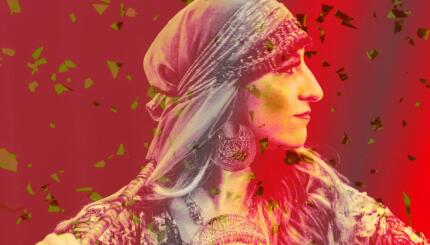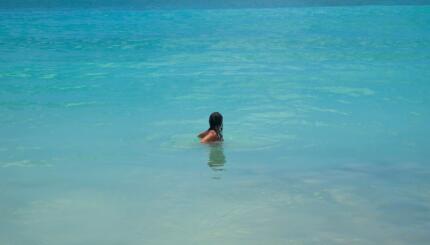Up until the mid-20th century, in the misty folds of the Zagros Mountains, Kurdish Jewish women held a special celebration once every year on the night before Purim. Known as Leil Purim (Purim Eve), this woman’s holiday was celebrated by a local river, combining beautification and decadent sweets.
The evening revolved around an event called khiyapit benatha, or the bath of the maidens. Mothers bathed their daughters in a beautification process that was supposed to make their daughters as beautiful and brave as Queen Esther, who also spent six months, along with the other maidens, bathing and anointing herself in the palace of the king before he chose her as his bride. At the river, Kurdish Jewish women danced, sang wedding songs, performed mock marriages between the girls, and decorated one another with henna. They also ate delicious date-filled cookies called kadeh (known in other parts of the Middle East as kleicha or ma’amoul).
This custom existed in Zaxo, Slemani, and Amedi — all cities in southern Kurdistan, now part of Iraq — but did not survive the rapid and tumultuous Jewish migration to Israel during the mid 20th-century. Unfortunately, all the resources we have surrounding this holiday are from Ashkenazi ethnographers, not from women talking directly about their own traditions. However, it is an important example of one of many Jewish women’s rituals found among Jewish communities of Islamic lands that have been largely forgotten. Another example is Eid El-Bnat, a Hanukkah celebration that literally means festival of the daughters.
Want to recapture some of the spirit of Leil Purim at home? We recommend you bake kadeh (here’s a recipe for ma’amoul, another name for this cookie), listen to Kurdish musicians (especially women!), and celebrate the powerful histories of Kurdish Jewish women such as Asenath Barzani, Ilana Eliya and Sabat Islambooly. Asenath, some would say, was the first woman rabbi, having been referred to as “our teacher” and “tannait” in her lifetime during the 16th century. Ilana Eliya is a modern day Kurdish Jewish feminist singer. Sabat Islambooly, a Jewish woman from Western Kurdistan, became one of the first women to become a licensed doctor in India after traveling to Pennsylvania for her medical education.

Help us keep Jewish knowledge accessible to millions of people around the world.
Your donation to My Jewish Learning fuels endless journeys of Jewish discovery. With your help, My Jewish Learning can continue to provide nonstop opportunities for learning, connection and growth.
Plus, a bubble bath probably wouldn’t go amiss. Or a dip in the river — if you live somewhere warm enough.



